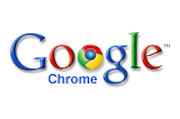 Woody Leonard/Infoworld commentary on upcoming Google Chrome OS and what it means. And what it means to Microsoft. Woody Leonard/Infoworld commentary on upcoming Google Chrome OS and what it means. And what it means to Microsoft. |
Google Chrome: Meet the Contender - PCWorld
By Woody Leonhard, Infoworld Dec 4, 2010 7:35 am
It's been a tumultuous year for IT shops, with paradigms shifting like tectonic plates in San Andreas. You might think the IT world would begin to stabilize a bit, at least conceptually, as we launch into the year-end consumer feeding frenzy.
Alas, it's not to be.
Depending on whom you follow, Google's long-anticipated Chrome OS could make its debut in the next couple of weeks, or the next couple of months. In mid-November, at the Web 2.0 Summit, Google CEO Eric Schmidt said Chrome OS would hit "in the next few months." A week later, Chrome OS head honcho Sundar Pichai was quoted in the New York Times, saying Google would launch a lightweight netbook with Chrome OS by the end of the year.
Although few heads will turn at the sight of a Chrome OS netbook -- we're not talking iPad 2 here -- the technology involved represents a radical departure from anything IT shops have seen in many years.
If you were around the computer industry 10 or 15 years ago, you may recall Larry Ellison's infatuation with the concept of a thin client: a minimalist chunk of hardware that sits on a desk, inextricably tethered to a server. The server provides all of the brains and most of the storage; the thin client only exists to interact with the server.
I tend to think of Chrome OS as implementing a gaunt client -- thin to the point of cadaverous -- tethered to the Web. No desktop applications. No backup programs. No UI tweaks. No tuning. No utilities. Just the Web, the browser, and the Web, and the browser.
More than a year ago, Google posted a YouTube video that explains Chrome OS's charm: Your netbook runs the browser, and that's it -- simple, fast, no layers of overhead, no dark corners for malware, just the browser on metal. More than that, Chrome OS doesn't store any of your data or settings on the computer -- it's all in the cloud. You can flit from one netbook to another and absolutely everything travels with you. If your netbook breaks down, pick up another one. Somebody steals it, who cares? If you're interrupted in the middle of doing something, you can pick right up where you left off by using any other Chrome OS device.
Google's given a lot of thought to the interface, as well. More than a year ago, Sundar Pichai posted another YouTube video with all sorts of details -- application tabs, dockable pop-up panels -- which may or may not end up in the product we'll see in a few weeks.
At the same time, Google released Chrome OS's source code, called the Chromium OS Project. Developers have been hacking away at it for a year. Chrome OS is from Google, and it's focused on hardware specifically built to Google's specifications. Chromium OS may run on many different boxes.
That was a year ago. Since then, we've heard very little from the Chrome OS team -- remarkable because it appears as if Dell, HP, Lenovo, Acer, Asus, Toshiba, and other hardware manufacturers are actively bulding machines using Chrome OS. Since then the world's changed, leading to much speculation about how Chrome OS may (or may not!) have adapted to the meteoric rise of the iPad and Google's own Android. By many accounts, netbook sales are hurting, with the iPad rushing in where Windows-based PCs feared to tread.
So how, you may ask, is Chrome OS different from Android? They were developed by two entirely different teams, working from diametrically opposed starting points. As Eric Schmidt said during his Web 2.0 presentation, Android is designed for touch devices and Chrome OS is designed for keyboard devices. Of course, that immediately begs the question of which operating system is intended for use on phones with keypads or slates with touchscreens -- a distinction that will certainly fade in the next year or two.
I wonder if Schmidt ever dreamed he would face a situation where two of his open source products will fight each other for market share. It seems inevitable, at this point.












 This site is produced by
This site is produced by